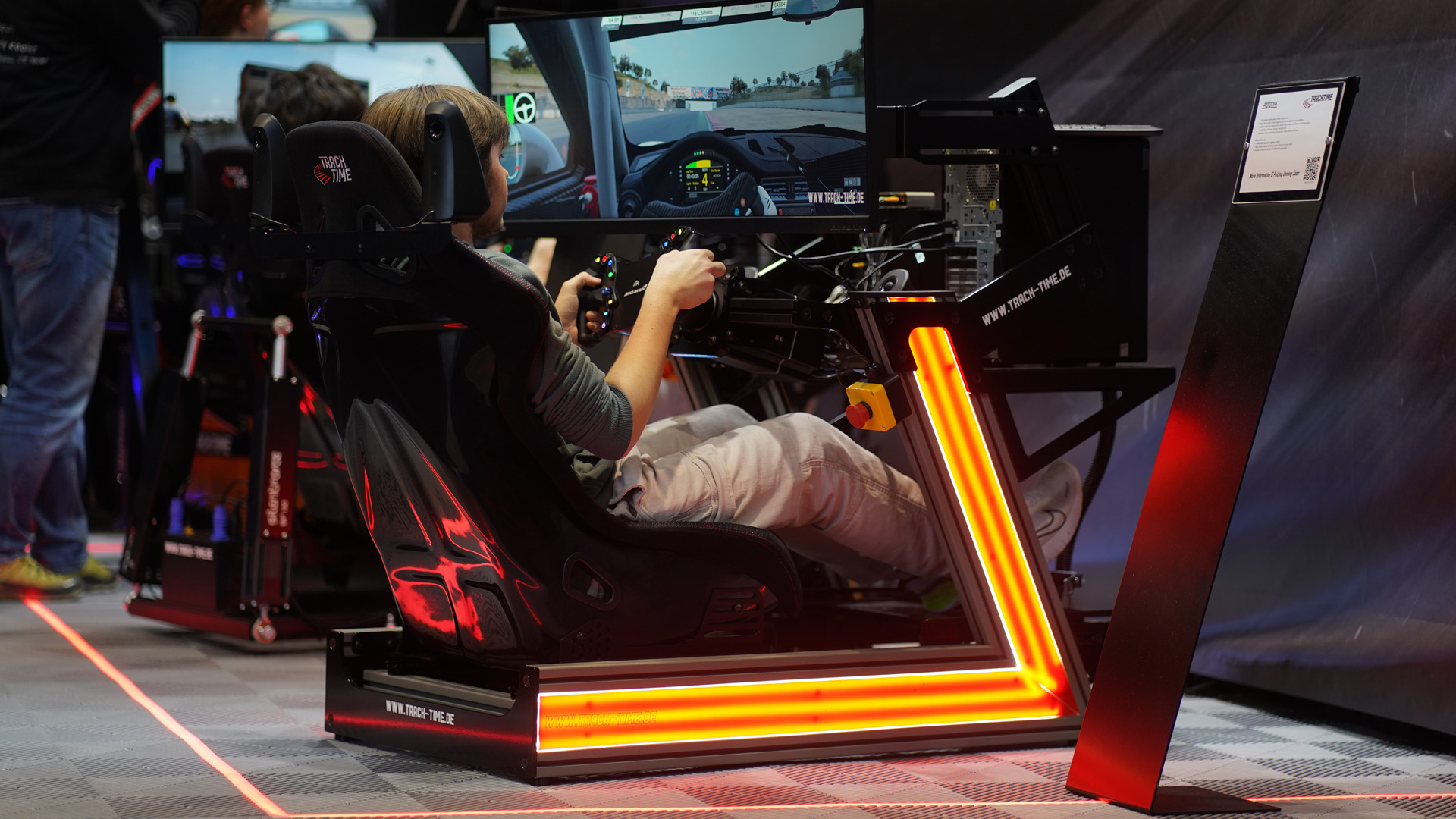Aside from ever-more-powerful direct drive wheel bases and new content, such as RaceRoom’s upcoming drift DLC, TrackTime delivered one of the stand-out products at the recent ADAC SimRacing Expo.
It chose the Dortmund event to debut prototypes of its first aluminium sim racing cockpits.

Part of the KW Automotive Group, the German outfit has long been making steel cockpits for sim racing, available separately or as an all-in-one ready-to-race installation.
In order to catch up with some of the competition already in the aluminium game, all the usual areas to easily affix accessories are present, but also some unique signifiers.
Along the main chassis rails, areas for cables have been specially designed – the test mule at the Expo hiding away any ungainly wires with ease.


However, the main feature is the bright LEDs adorning the exterior. In the work-in-progress versions Traxion tested, these where lit white, with a colour sticker. But in the final versions, these will simply be lights that can change colour and, in theory, via the ubiquitous SimHub software.
On one rig we tested, for example, it was orange to match the lights on the Asetek wheel base also in use. The ground was even matching, with TrackTime considering making its light-up ‘performance floor’ for use outside of its own exhibition stand.
The colour of the chassis could also be available in different shades, with white, silver and gold on display. The design has been created with motion adaptability in mind – a TrackTime speciality.
Pricing and a release dates are far from confirmed. Traxion expected the range to start somewhere inbetween €700-€800, rising to ~€1,500 for the top-of-the-line model, with final versions expected in Q2 of 2025.
[adinserter name=”trophi.ai”]





Chat with the Community
Sign Up To CommentIt's completely Free